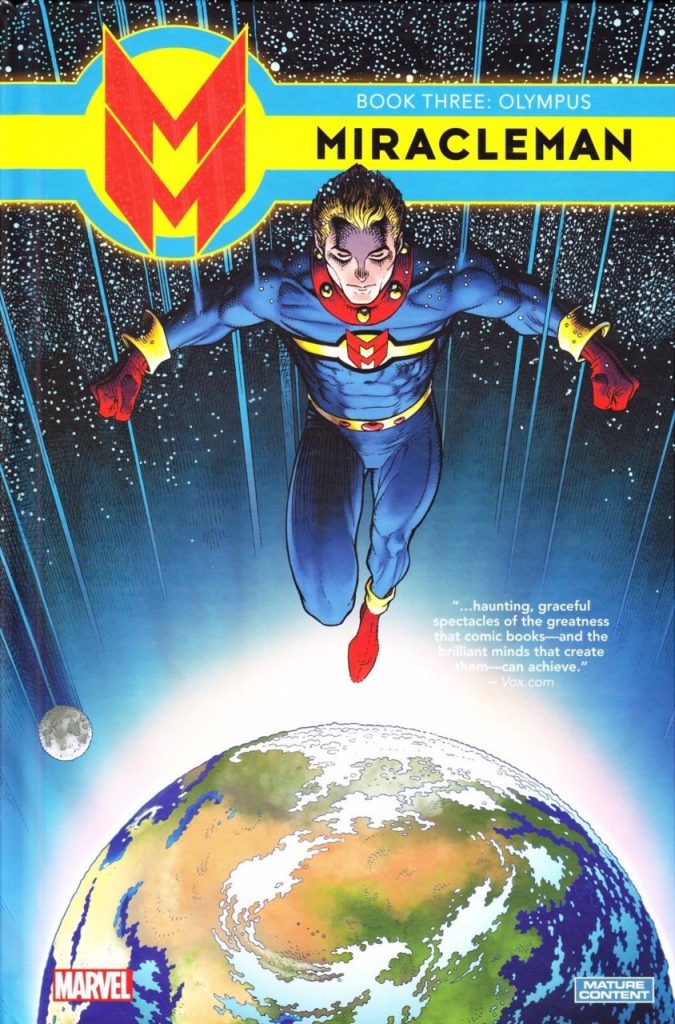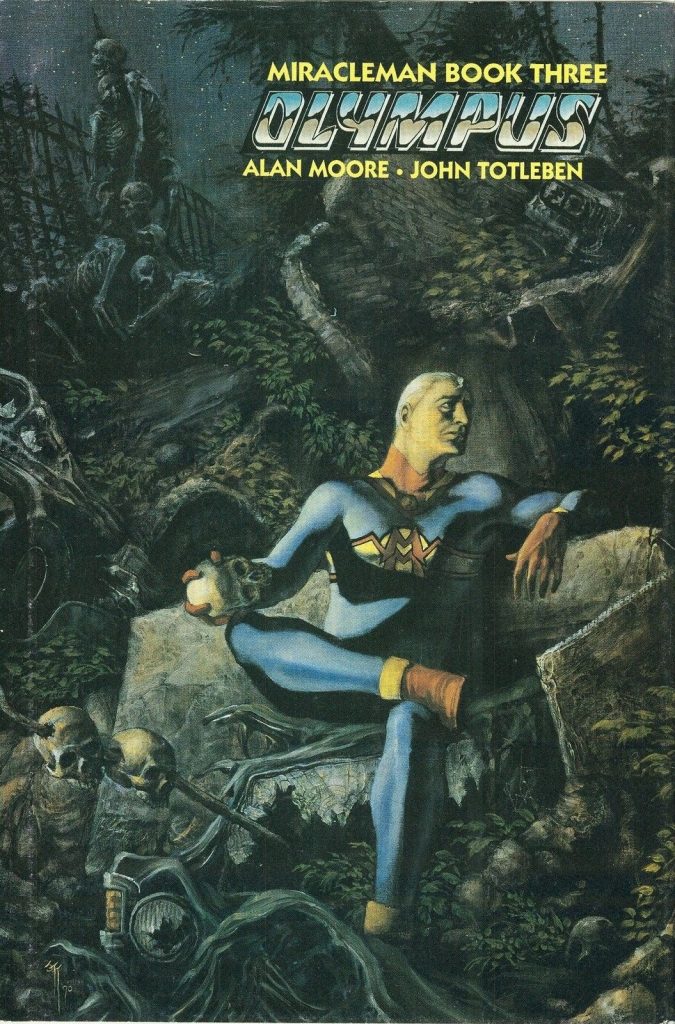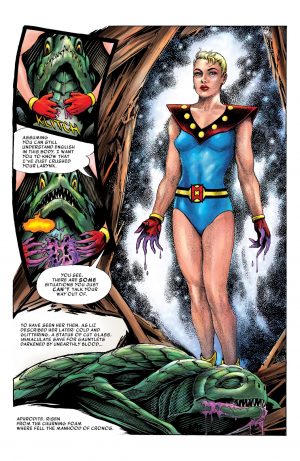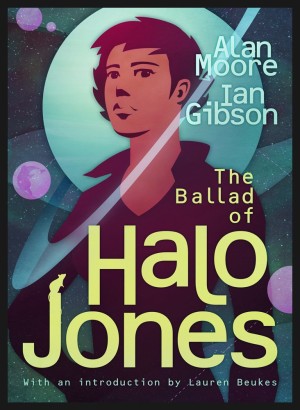Review by Frank Plowright
With Olympus Alan Moore takes a five year narrative leap forward from The Red King Syndrome to 1987, reintroducing Miracleman in a world of wonder and switching the tone to one of events related in hindsight and from afar. Moore’s careful script continually emphasises distance, not just in time, but of personality, as if the current Miracleman is looking back on his 1982 counterpart and his concerns as those of a child. It’s both seductive and perturbing, especially as both Moore and John Totleben’s visuals are inviting comparison with the old Greek Gods.
Comparing Olympus with Moore’s introductory work on Miracleman from five years earlier, the progress is as vast as Miracleman’s own transition. A Dream of Flying was startling for its redefinition of the superhero, and while Olympus pulls a variation on the same trick, it’s accompanied by a cascade of ideas as Moore defines the possibilities of a superhero refashioning the world. Each chapter is introduced with more of these marvels, providing a narrative density unusual for superhero comics, where every idea counts for something, while never before had such conceptual riches been scattered for atmosphere. Dialogue is minimised, with much of the story told in descriptive prose captions.
As Moore has moved on, a different type of art is necessary, and John Totleben’s density matches Moore frame by frame, epiphany by epiphany and degradation by degradation. Totleben’s background in horror is necessary for a penultimate chapter when Moore unleashes the armageddon that would occur if supermen really let loose over a major city. The carnage is atrocity, disturbing beyond anything seen in any superhero comic. The final chapter is also extraordinary, on the surface Moore laying out a manifesto for a perfect world, but beneath allowing room for doubt. More controversial now than in 1987 is Miraclewoman casually shrugging off being repeatedly raped as an irrelevancy as it didn’t impinge on the real her, whereas Kid Miracleman’s reaction to a single incident wipes out London. It’s a distorted balance, and some find it offensive, although Moore contextualises the incidents well, presenting two very different extreme personalities. Has there been an outcry about an advanced intellect in the body of a three year old girl talking about experiencing sex? Again, it’s contextualised. The only censorship Marvel have applied is bizarre, excising the word “nigger” as spoken by an appalling being with no redeeming qualities. The 1991 Eclipse edition wasn’t as coy.
In terms of sheer bold ambition Olympus still stands on high despite all the tens of thousands of superhero comics published since it first appeared. It’s a remarkable work that redefined what superhero comics could be, but unfortunately lesser writers who took note only absorbed the darkness, not the accompanying imagination and poignancy.
The book finishes with two brief stories not by Moore and Totleben. Grant Morrison and Joe Quesada’s look at Johnny Bates is an inconsequential interlude, while Peter Milligan and Michael Allred’s look back at the happier era of Marvelman stories is more deliberately trivial, but both are ill placed next to Moore’s work. As with A Dream of Flying, the main feature would rank higher divested of the non-Moore material.





